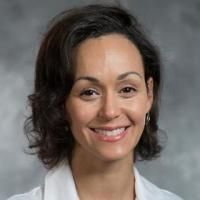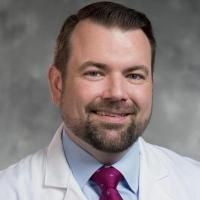
Duke Radiation Oncology residents grow professionally through a formal coaching program, research mentoring and a career mentoring program.
Residency Professional Development Coaching Program
The Residency Professional Development Coaching Program pairs Duke Radiation Oncology residents with faculty members who will coach them on their individual professional development throughout their training here.
Faculty coaches are trained to help residents excel and progress throughout their residency training, and to assist residents earlier when they can benefit from additional guidance and support.
The coaching program offers an opportunity for residents to:
- connect with faculty members who can provide meaningful, ongoing guidance;
- freely discuss their work experiences with faculty not directly involved in their training;
- reflect on their performance, failures, and achievements;
- identify their strengths and how to use them to overcome challenges.
This program was implemented in 2012 at the Massachusetts General Hospital, and has been rolled out successfully in residency programs across the country since.
Duke initially piloted the program in the Internal Medicine Residency Program, with support from Duke Health leadership, the Office of Graduate Medicine Education and the Department of Medicine. The coaching program has subsequently expanded to Duke’s Ob/Gyn, Anesthesia and Pediatrics Residency programs in addition to Radiation Oncology. Duke’s implementation of this program is part of efforts from the health system to address employee wellness and workplace engagement.
The program is directed by Karen Steinhauser, PhD, Associate Professor of Medicine (General Internal Medicine).
How does coaching differ from mentoring?
Mentors serve the vital role of guiding their mentees, inspiriting others to be like them, offering advice and wisdom, sharing stories, setting goals for mentees and addressing fears and anxieties. The coaching relationship focuses less on career development, and more on individual professional development. It is a non-evaluative, non-prescriptive, egalitarian, learner-driven, accountability-oriented relationship.
What does it mean to be a coach?
Professional Development Coaches are trained in positive psychology techniques during two faculty training sessions. Coaches are then assigned 2-3 residents who are interested in a field other than their own. Coaches meet individually with each resident, up to an hour at a time, three times during the first year, and then quarterly. During these meetings, coaches review resident evaluations, encourage reflection and set learning goals for the next three months of rotations. The program provides guidance and materials for all sessions.






